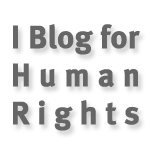TAKING RIGHTS SERIOUSLY
In 1977, Ronald Dworkin wrote ‘Taking Rights Seriously’, a book that argued that that rights must be understood as extremely important moral concerns, and cannot be outweighed merely because a majority would be better off by violating the rights of an individual. Rights need extremely strong protection because they are necessary for the dignity and equal respect of individuals, especially when those individuals form a minority within a society. Dworkin believes that the right to free speech and due process is a paradigm example of a right that should be given extremely strong weight-what he elsewhere has called treating rights as trump cards. Dworkin finally says that only when governments respect rights will respect for the law be generally reestablished.
A few weeks ago, President Bush signed the Military Commissions Act, a piece of legislation that has undermined the notion of civil liberties in the legal setup. What the Act has basically done is, to legalize Guantanamo, disallow Habeas Corpus petitions and prohibited the invocation of Geneva Conventions protocols. In brief, it is a law that has diluted the basic principles of justice and righteousness in the garb of providing security for the citizens. In most ways, this Act makes people think. To what extent can the State violate civil liberties? When Dworkin writes that only when Governments respect rights will the law be respected, what and whose rights are we talking about? Looking at this situation in the example of India, we see that with two major terrorist strikes in the past one year, people are questioning the Centre’s stance on terrorism. Some are even advocating the invocation of POTA and to do away with the Unlawful Activities Prevention (Amendment) Act, 2004. While such debates continue all over the country, the question still remains unanswered, ‘to what extent can the state restrict a right?’.
Fundamental rights and due process are the very foundations on which our legal system is based. It goes without saying that the benefit of the rights mentioned in part III of the Constitution goes to all citizens of the country and not a section of them. If a democracy cannot protect these rights, then it ceases to be one. When we talk of the democratic state of ‘rule by the people’, at least in theory it is not meant to be the rule of a majority but the rule of each and every citizen and the protection of his rights. What terrorism does, is that is creates pressure on the centre to look at other means of curbing terrorist activities, the most common of which is to abridge and take away the fundamental freedoms of certain people. When the Prevention of Terrorist Act (POTA) was introduced in 2002, the majority cheered for they had found a way to tackle terrorism, but some remorsed for the greater harm that was being caused under the cover of national security. And what’s more, the Supreme Court gave sanction to such legislations in Kartar Singh and PUCL v. Union of India. The Unlawful Activities Prevention (Amend) Act, 2005, was, in issues like the collection of evidence, harsher than the POTA. Over a length of time, if we notice and plot the legislations against terrorism on a continuum, they move towards the taking away of civil liberties.
This problem, however is not India specific. The detention of people in the United Kingdom, the terrorist laws in Spain and of course the measures of the United States are examples where developed legal systems are compromising civil liberties and rights in interests of national security. There is an unequivocal settlement that national interests are of primary importance. But what about rights and fundamental freedoms? Alan Dershowitz once emphasized that the Government loses credibility when it cannot tackle issues along due process concerns and resort to other means of prosecuting people. The point that is sought to be made out here is that terrorism’s greatest victory is the shackling of the state system. If we, as a democratic state do not stand by the very principles of rights we are made of, we shackle the very foundation of democracy. In the interests of protecting a majority, the rights and freedoms of a minority must never be compromised. Once again I emphasise, that a democracy is not of a majority but comprised of each and every citizen living in it. We must deal with terrorism within our existing setup. The history of our nation has begun with the protection of liberties for everyone and must not end at any stage.
Labels: Dworkin, Rights, Terrorism







0 Comments:
Post a Comment
Subscribe to Post Comments [Atom]
<< Home